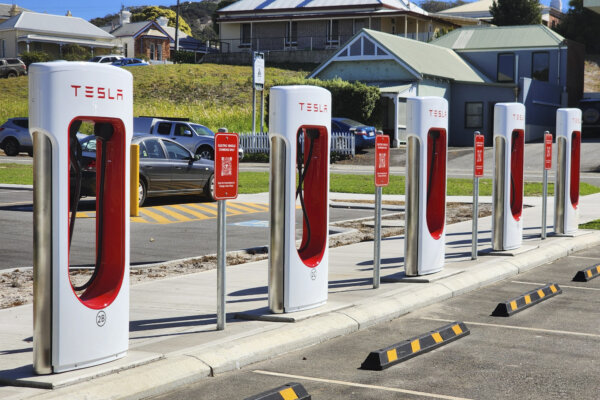
In Australia, electric vehicle sales saw a decline in the month of April. However, there was an increase in hybrid vehicle sales.
Origin Energy, a major energy company, is now providing Tesla electric vehicle owners with the opportunity to fully charge their cars for as low as $4.60 (US$3.05).
This discounted charging service is available through an app, offering automated EV charging at 8 cents per kilowatt-hour during scheduled charge sessions.
The initiative, known as EV Power Up, aims to avoid peak charging times to help balance the energy grid and save customers money.
This discounted EV charging service is exclusively available to Tesla EV owners who have an Origin residential electricity account and the company’s app.
Origin’s EV Power Up program aims to provide affordable and convenient charging options for electric vehicle owners.
Origin Energy anticipates a significant increase in the number of electric vehicles on Australian roads by 2030.
The company’s initiative to support EV charging not only benefits customers but also contributes to the stability of the national electricity grid.
Origin Energy plans to extend its EV charging services to accommodate other electric vehicle brands besides Tesla.
EV Charging with a Smart Meter
AGL, another prominent energy company, is offering EV charging services for as low as $5 during off-peak hours using a smart meter.
Customers can sign up for AGL’s Night Saver EV plan to take advantage of discounted charging rates between 12 a.m. and 8 a.m.
AGL recommends installing a digital meter to track energy usage during off-peak hours and optimize charging costs.
The company’s initiative aims to encourage more customers to switch to electric vehicles by providing cost-effective charging solutions.
Battery EV Sales Decline in April 2024
In April 2024, battery electric vehicle sales accounted for 6.4 percent of total new car sales in Australia, down from 7.9 percent in the same period last year.
On the other hand, hybrid and plug-in hybrid vehicle sales increased to 18.3 percent of the market share in April, compared to 7.5 percent in 2023.
The SUV and light commercial vehicle segments continue to dominate the market, with SUVs representing 55.7 percent of sales and light commercials accounting for 22 percent.
Toyota emerged as the top-selling vehicle brand in April, followed by Ford, Mazda, Kia, and Mitsubishi.
AAP contributed to this report





